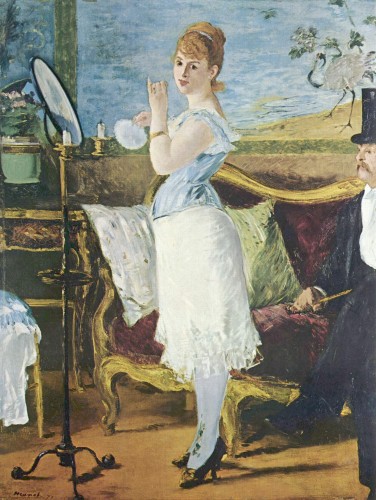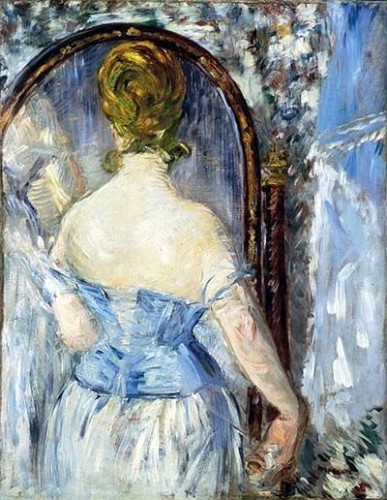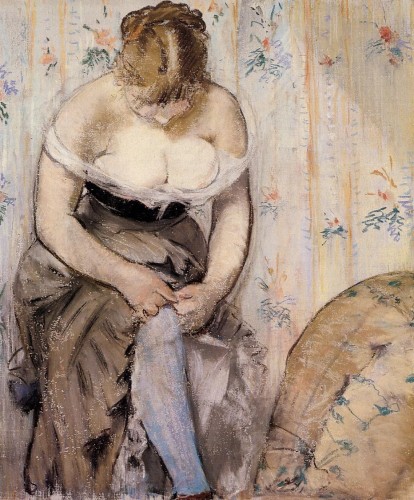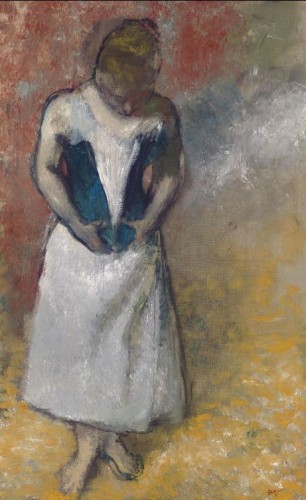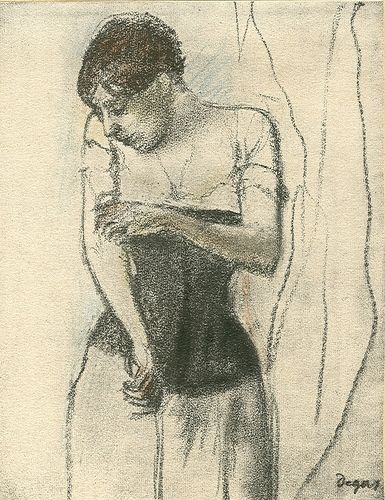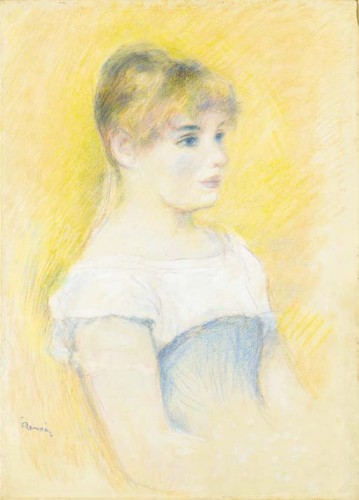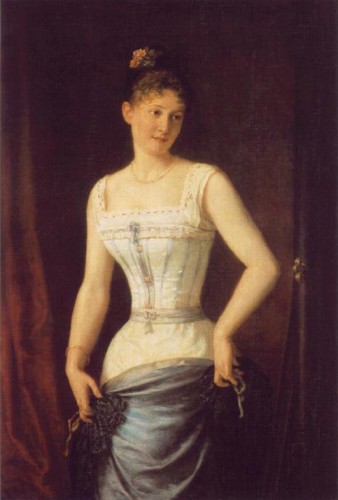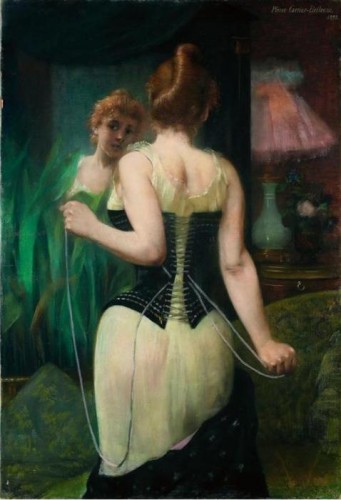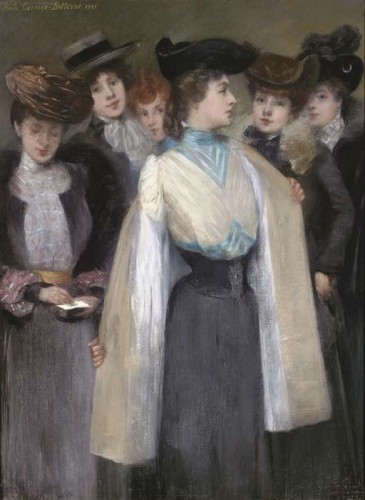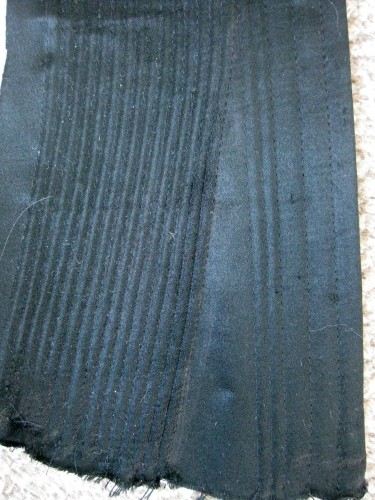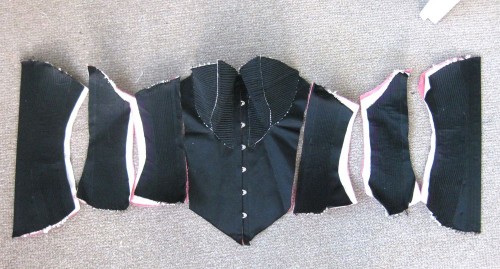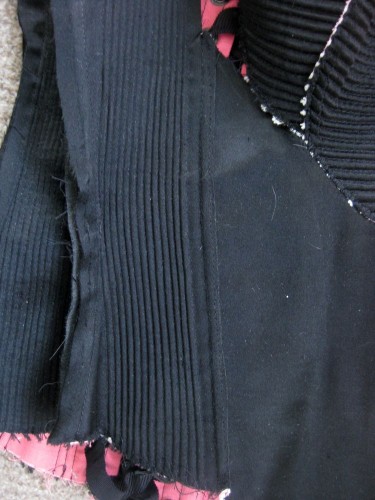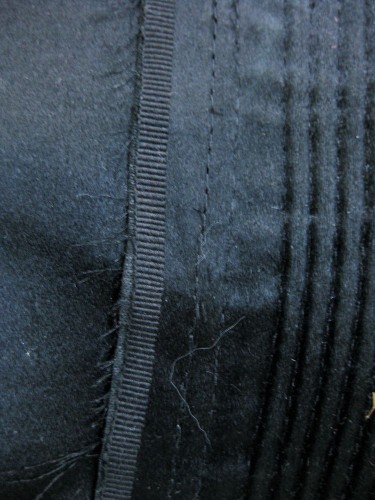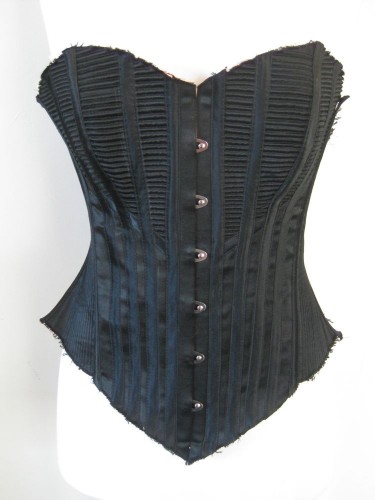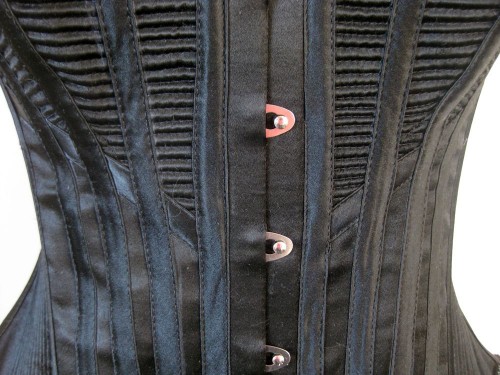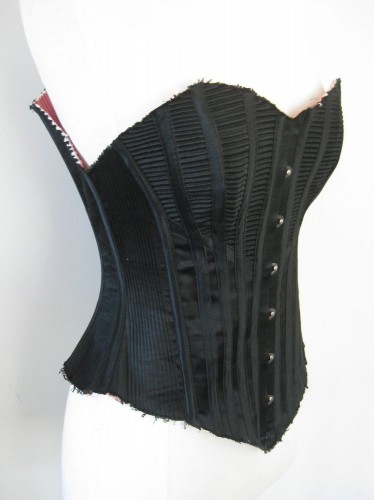Impressionism is famous for capturing the mood of scenes, and the nuances of everyday life, so it’s no surprise that many impressionist artists were inspired by the most ordinary, but intimate moments of life: the act of getting dressed.
The most famous Impressionist painting depicting underwear doesn’t show quite such an ordinary scene. Manet’s Nana looks sweet enough, but subtle clues in the painting reveal her identity as a courtesan.
I love how you see the rounded stomach, and the flesh of her thighs bumping up below the corset. It’s so realistic, despite the glamour of the setting.
I wonder if ‘Before the Mirror’ shows the same model, and the same corset, as Nana? It’s certainly a possibility.
I love how this one echoes the garter tying in Boucher’s La Toilette
De Witte’s painting does a good job of showing an underbust corset, and the way the bust sits above it.
Degas work is a great illustration of how you put on a corset. The model must have had someone to help her with her shoes, as it’s hard to put them on after a corset!
What a lovely charcoal sketch. But what is the model doing!?!
I just love how Renoir sketch of a girl in a corset does such a good job of indicating the boning and stitching of the corset with just a few lines. It’s a great inspiration piece for Dr Sketchy!
My last two images aren’t actually impressionist paintings, but they are such lovely late Victorian paintings of corsets that I couldn’t resist including them.

